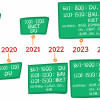Pessimism, indecisiveness: A worrisome state of university students

Two of the characteristics of successful individuals are optimism and decisiveness. How does our youth population – the university students – fare on these two attributes?
A constant fear that there will be a negative outcome for any decision is pessimism, which, in turn, induces indecisiveness and leads to feelings of worthlessness and despair. No matter what the decision may be, fear of a negative outcome hinders the decision-making process.
Experts see pessimism and indecisiveness as part of a larger set of indicators that signify mental illness such as anxiety, stress, and depression. Our recent study of a sample of 586 university students revealed a rate of pessimism and indecisiveness in them that is alarming.
In Bangladesh's conventional and impaired educational system, mental illness continues to be disregarded and ignored by those at the helm of affairs. Our research found that 54.6 percent of students are somewhat pessimistic, if not entirely negative. What's more disturbing is that 28.7 percent of students said either they don't expect things to work out for them, or they feel that their future is hopeless. Success requires confidence and positivity – two traits that need to be strengthened in our student body.
The tendency of indecisiveness among the present generation of university students is also very high. According to our study, 61.3 percent of students are suffering somewhat from indecisiveness, 12 percent said that they have much greater difficulties in making decisions than they used to, and 19.5 percent said they struggle to make any kind of decisions, reflecting a form of psychological vulnerability.
Where does all this negativity come from? Poor academic experiences, failure in exams, and the inability to build relationships with peers play a large role. Faculty members also earn the dubious distinction of impairing students' mental health: they display an appalling spirit of marginalisation and discouragement of students through offensive and humiliating behaviour while heaping vitriol. In the traditional academic environment, where the teacher is the "all-knowing" and "all powerful" supremo in an authoritarian role, they control many aspects of a student's life. Unethical and illicit behaviour is also not unheard of as teachers take advantage of their positions.
Oftentimes, students feel that they simply don't fit in their educational institutions or even in society. They hardly find anyone who might listen to them and guide them. What does all this negativity portend for the next generation when they hold the reins of decision-making? Fear of failure and negative thoughts affect a student's life, academics, and career prospects immensely. It damages one's confidence, imagination, and determination to achieve life's goals when thoughts creep in that s/he will not succeed. Thousands of students drop out or leave the country every year to escape this cynical cycle. Even a student of high calibre can fall into the trap of cynicism, eventually feeling worthless.
One can imagine what all this does to a student's enthusiasm and spirit of learning. And where rote learning still reigns supreme in determining one's success or failure, it ignores many other promising dimensions of an individual's potential.
Besides, lack of recognition and support of the institution leave the students grasping for straws in an ocean of neglect. Especially unfortunate is the educational institutions' failure to recognise the diverse talents of their students; instead of letting them flourish, students are kept leashed to a bookish environment, bereft of the joy of discovery.
Peer pressure can also misguide the students, prodding them into the realms of the unconventional, including drugs. Then there are accommodation and boarding difficulties, intimidation by peers in politics, and financial woes.
Being constantly surrounded by negativity elicits violence, human rights abuses, abysmal treatment of women, political strife, and dwindling job opportunities among other consequences. It needs a strong spirit for an aspiring student to stay positive.
Families also generally discourage young students from pursuing their preferred academic subjects or professions. Oppressive pressure is felt when the family decides not only "what" their progeny will study, but also the "grades" they are expected to deliver. Overbearing parents are often extremely negligent about the mental health of their children.
Oftentimes, students feel that they simply don't fit in their educational institutions or even in society. They hardly find anyone who might listen to them and guide them. What does all this negativity portend for the next generation when they hold the reins of decision-making?
Fear of failure and negative thoughts affect a student's life, academics, and career prospects immensely. It damages one's confidence, imagination, and determination to achieve life's goals when thoughts creep in that s/he will not succeed. Thousands of students drop out or leave the country every year to escape this cynical cycle. Even a student of high calibre can fall into the trap of cynicism, eventually feeling worthless.
It is time for our educational institutions to change. With proper and enlightened thinking and decisive action, change is possible. A first step is to deal with those (administrators, teachers, and students) who have held academia hostage for far too long.
People's perspectives on what success means must also change. Obsession with conventional career paths (e.g. civil service or medicine) is not what success is about for many students, draining their positive energy and determination silently and resolutely. They should be able to follow their heart instead of having someone else's decision imposed on them – a terrible burden to carry for a lifetime.
A generation full of pessimism and indecisiveness will not a nation make. It is time to focus thinking in our educational institutions on how to create a generation of confident, positive, and equipped youth ready to take on the emerging world.
This op-ed, the third of a four-part series, is the result of faculty-student collaboration designed to impact higher education in Bangladesh.
Dr Syed Saad Andaleeb is distinguished professor emeritus at Pennsylvania State University in the US, former faculty member of the IBA, Dhaka University, and former vice-chancellor of Brac University.
Fatima Nafsia Taslim completed her MBA from the IBA, Dhaka University.

 For all latest news, follow The Daily Star's Google News channel.
For all latest news, follow The Daily Star's Google News channel. 










Comments